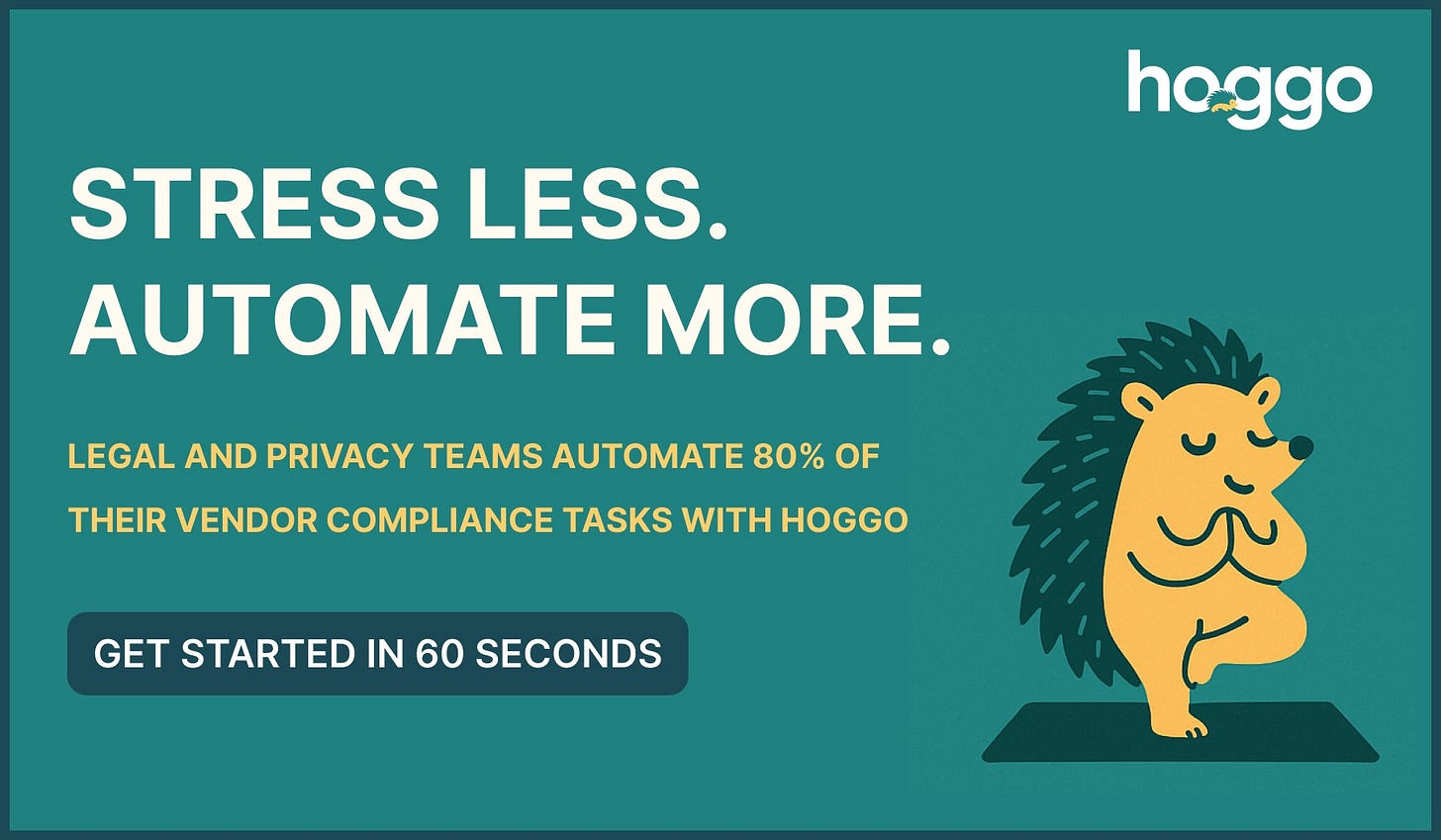Sam Altman's Dystopian Plans
The singularity that tech executives are visualizing requires our full commitment, adoration, and dependence, even if we don't want it | Edition #211
👋 Hi, Luiza Jarovsky here. Welcome to our 211th edition, now reaching 63,800+ subscribers in 168 countries. To upskill and advance your career:
AI Governance Training: Apply for a discount here
Learning Center: Receive free AI governance resources
Job Board: Find open roles in AI governance and privacy
AI Book Club: Find your next read and expand your knowledge
Become a Subscriber: Read all my analyses, no paywalls:
👉 A special thanks to hoggo, this edition's sponsor:
Legal and privacy teams automate 80% of vendor work with hoggo's AI platform. Transform weeks-long vendor assessments into minutes with automated evaluations, monitoring, and standardized reporting. End the cycle of repetitive manual work and redirect energy toward strategic initiatives that matter. Get started for free, no strings attached.
Sam Altman's Dystopian Plans
Yesterday, Sam Altman, the CEO of the world's most influential AI company, published a blog post titled “The Gentle Singularity,” sharing his vision for the future of AI and how we will get there.
In today's edition, I discuss some of the article's premises and assumptions, which give us a glimpse into Altman's worldview, values, and dystopian plans for the future, even though he euphemistically calls them “gentle.”
It also helps us understand what OpenAI's next moves might be, and how society might be affected by the expansion of AI-powered technology.
-
Let's start with the title: “The Gentle Singularity.” By singularity, he is referring to a hypothetical point in time when AI surpasses human intelligence and transforms society in a systematic, uncontrollable, and irreversible way.
By framing it as “gentle,” he is giving it a specific positive connotation: in his (or OpenAI's) approach to singularity, it would happen more smoothly than many might expect. It is, of course, a marketing strategy (as the whole blog is, too).
“We are past the event horizon; the takeoff has started. Humanity is close to building digital superintelligence, and at least so far it’s much less weird than it seems like it should be.”
My first comment is that in recent months, the term “AI” seems to have become dusty, and major AI-related initiatives are now called “superintelligence.”
Examples include Meta, as Mark Zuckerberg has recently announced he is personally hiring 50 engineers to build superintelligence, and the newly-founded company of Ilya Sutskever, the co-founder and former chief scientist of OpenAI, which is called “Safe Superintelligence.”
If “AI” is associated with autonomous inference, “superintelligence” is associated with something superior to human intelligence. Perhaps something we should fear.
“Robots are not yet walking the streets, nor are most of us talking to AI all day. People still die of disease, we still can’t easily go to space, and there is a lot about the universe we don’t understand.”
Among other things that are part of the collective unconscious when talking about the future, such as robots, space travel, and the end of disease, he added “talking to AI all day.”
Does anyone want to talk to AI all day? I don't think so.
However, tech CEOs such as Sam Altman and Mark Zuckerberg want us to do it. When people talk to AI all day, they become dependent, domesticated, and profitable customers, helping to train AI and personalize it, helping to make AI systems even more enticing and manipulative.
Zuckerberg, for example, is betting high on “AI friends” and wants everyone to “befriend” anthropomorphic chatbots. In a recent interview, he said that when "the personalization loop kicks in,” these “AI friends” will be extremely compelling.
Altman has recently announced a partnership with former Apple designer Jony Ive to build a mysterious, ultra-personalized, voice-powered new device, which, among other features, will be fully aware of the user's surroundings and life.
Even if we don't want to talk to AI all day, tech executives will use all their marketing, PR, economic, social, and technological apparatus to normalize this behavior and make it a prerequisite to fully enjoy the digital environment and belong in the modern society.
Altman's plan for us does not stop there:
Keep reading with a 7-day free trial
Subscribe to Luiza's Newsletter to keep reading this post and get 7 days of free access to the full post archives.




